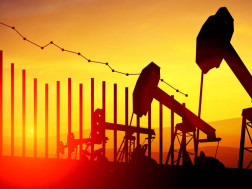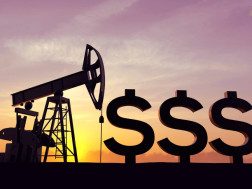Business Insider - Global oil demand will recover more slowly than expected next year, even with the rollout of a COVID-19 vaccine after "unprecedented and historic turbulence" in 2020, largely because of the damage to aviation fuel consumption from the pandemic, the International Energy Agency said on Tuesday.
The IEA, which advises Western governments on energy policy, believes global oil demand growth will reach 5.7 million barrels per day in 2021, 170,000 barrels per day below its forecast last month, mainly because of a downgrade to its estimates of jet fuel demand next year.
"In 2020, we have seen unprecedented and historic turbulence in energy markets. The disruption to normal life caused by the pandemic has had a serious impact on the health and welfare of millions of people," the IEA said in its December oil market report.
Road transportation fuel demand will likely return roughly to where it was in 2019, the IEA said. But weak jet fuel consumption will account for as much as 80% of the 3.1 million shortfall in consumption in 2021 relative to 2019, the IEA said.
"In the short term, oil demand remains weak," the report said. China accounted for much of the improvement in energy consumption over the second half of 2020, but the outlook elsewhere is less promising.
"The picture in OECD countries is bleak: in the same period demand will be 5.3 million barrels per day lower than a year ago. Indeed, Europe appears to be going backwards with demand in 4Q20 lower than in 3Q20 as re-imposed lockdowns take their toll," the agency said.
The IEA expects oil demand to fall by 8.8 million barrels per day this year, roughly in line with its November forecast for a decline of 8.85 million barrels per day.

The IEA expects oil demand to fall by 8.8 million barrels per day this year, roughly in line with its November forecast for a decline of 8.85 million barrels per day.

The oil price, which hit historic lows in the spring, when the pandemic brought virtually all global transport, consumer and factory activity to a halt, has since more than doubled in value to around $50 a barrel, largely thanks to the rollout of a number of COVID-19 vaccines.
However, even with a number of successful vaccines to protect the population, energy demand will not stage a strong comeback in the near future, especially given the resurgence of the virus in major economies, such as the United States, Germany, the United Kingdom and Canada.
"The understandable euphoria around the start of vaccination programs partly explains higher prices, but it will be several months before we reach a critical mass of vaccinated, economically active people and thus see an impact on oil demand," the agency said. "In the meantime, the end of year holiday season will soon be upon us with the risk of another surge in Covid-19 cases and the possibility of yet more confinement measures," it added.
On the supply side, the Organization of the Petroleum Exporting Countries and their partners have agreed to only gradual increases in crude output to prevent another protracted slide in the oil price.
OPEC+ agreed earlier this month to increase output by just 500,000 barrels per day each month starting in January, well below the market's expectation for a rise of 2.2 million barrels per day from the group's agreed 7.7 million barrel per day target.
"For 2021 as a whole, non-OPEC producers outside OPEC+ are expected to increase output by 400,000 barrels per day after a fall of 1.3 million barrels per day in 2020," the agency said.
However, the IEA believes that demand will not materially overtake supply and drain a global overhang of unused fuel until much later in 2021.
"Our analysis suggests that the global crude market will have a stock surplus of 625 million barrels at the start of 2021 versus December 2019.
If we assume that Chinese balances are neutral in 2021, the market will absorb the 183 million barrels located elsewhere and in July it will move into deficit versus end-2019," the agency said.
If we assume that Chinese balances are neutral in 2021, the market will absorb the 183 million barrels located elsewhere and in July it will move into deficit versus end-2019," the agency said.
















